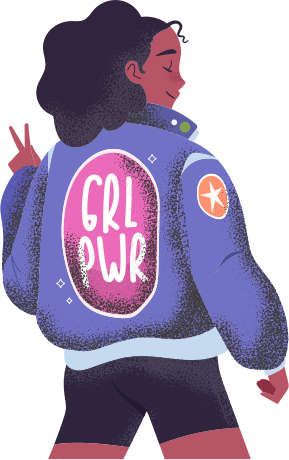I remember sitting around with some girlfriends recently, all WoC and all of South Asian descent, talking about the upcoming Danny Boyle flick Yesterday. We laughed about how responses on Twitter were identical to ours: look, a brown bloke is the main guy and it’s not a movie about terrorists or IT – we’re watching it.
My brother-in-law lives in Nairobi; he spoke about how people in his hometown went to watch Black Panther in the cinemas 3-4 times. My husband spoke about how the black people in his office went around making W’s with their arms on their chests, saying ‘Wakanda Forever’ to each other. I remember reading Chrissy Teigen’s impassioned Instagram post after she first watched Crazy Rich Asians. I remember the amount of people who quoted it on Twitter, its sentiments resonating so strongly with them. Being seen is important.
Recently, I watched Aladdin. It wasn’t good. Here’s the problem; all brown people don’t have the same culture, roots or ethnic identity and pretending they do – even in a world with blue genies – isn’t helping anyone feel visible. In fact, like not seeing threads for the tapestry, it makes you feel more invisible. Now, it may sound excessively optimistic to the point of stupidity to expect a Disney movie to be receptive to the nuances of any culture… Or would it? Though an Arab market might have every creed of merchant or consumer imaginable, Disney’s approach was to base their entire narrative in a world utterly devoid of specification, apart from everyone mostly being brown-ish. But then, we’re literally referencing cultures so completely, geographically and historically different that to conflate them seems insane. Especially in 2019.
We now live in a world where I see regular Buzzfeed articles about Latino culture, like what famous Latinos have to say about immigration; weekly articles on Black excellence; and a plethora of videos on Korean upbringing, snacks and random behaviours. And this stuff is pretty regular. On the same website, every now and then, there’s some stuff about Bollywood, but not much to compare to the amount of content available for other minorities. And let’s not even get into the difference between the amount of Italian-American representation on the silver screen in America versus South Asian representation on British television (when South Asians may even represent a greater proportion of the population of Britain than Italian Americans do of America). In a world where cultures are getting precise mainstream recognition, and South Asians could do with more of that, surely someone could have told Disney that their Jasmine isn’t Arab but is actually British-Indian. This stuff matters.
I remember years and years ago talking to an old school mate about how I’d heard that the Korean actress in Lost refused the main role in Memoirs of a Geisha, because, hello, she isn’t Japanese. My friend responded by nodding and saying it’s a form of racism. I was taken aback because being South Asian in a South Yorkshire school with 1000 (literally) white kids, racism was not a word you used lightly. Mostly because though the school had an official policy of zero-tolerance, most of the kids had a policy of ‘don’t be racist to me and I won’t be racist to you’. But my friend was right. The fact that in the end the main role in Geisha went to a Chinese actress anyway demonstrates one of the reasons why Crazy Rich Asians being committed to decent representation is so important – it’s about progress, especially when Hollywood isn’t giving Asians actors anything like enough of a chance and you have a point to prove. Like one critic said, “for people who are so rarely depicted on-screen, the well-documented hunger to be represented is surpassed by a deep-seated need to be represented well”.
My school wasn’t wrong to implement a policy of zero-tolerance towards racism, but the student body response demonstrates exactly my point. Visibility, and through visibility normalisation, finding commonalities, is not always about policymaking, positive discrimination or ‘successful multiculturalism’. A lot of the time, it is about writing a few more articles that mean nothing but mean something. Recognising the right cultural truths on screen that seemingly mean nothing but mean something (why do Aladdin and Jasmine have American accents?). Through the right kind of seemingly minimal acknowledgement, the margin of ‘us and them’ narrows, but not artificially. You are not forcing assimilation into a larger culture by blending differences out, but you are allocating each culture its rightful space in the narrative of a society and then creating channels and experiences for people to enjoy and learn from each other. It’s about respect. So, Patel is the lead in Yesterday and that means nothing but means something. It could be a start; I hope it is. I believe in Yesterday.
—
Follow Zahabiya on Twitter @zazusebastian and keep up with her awesome work!



